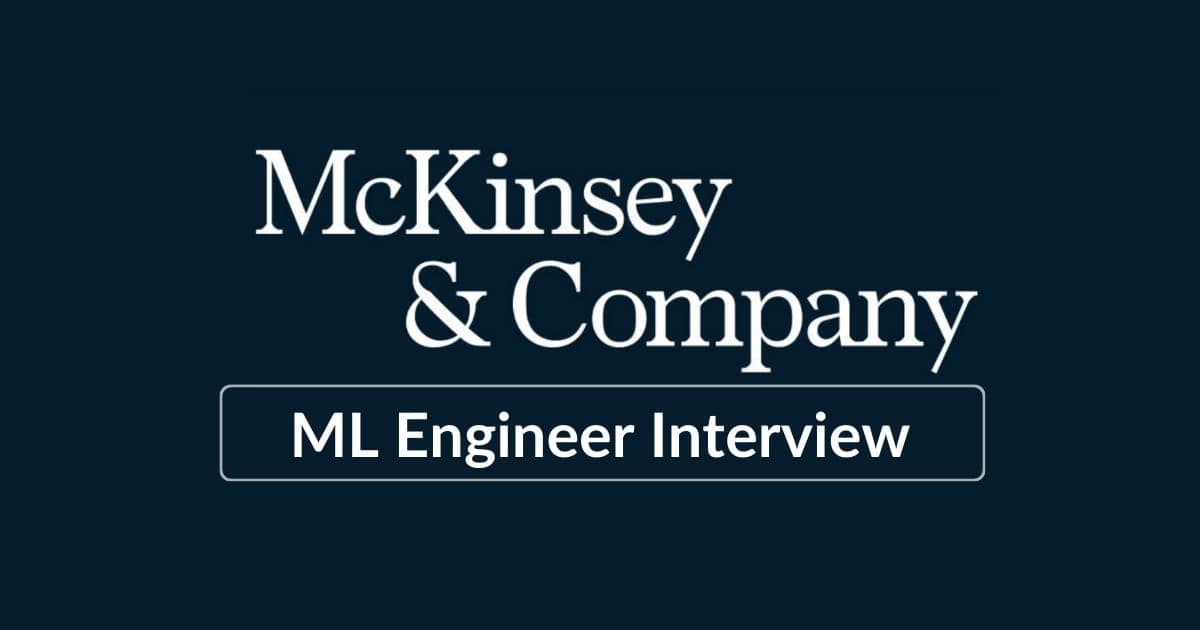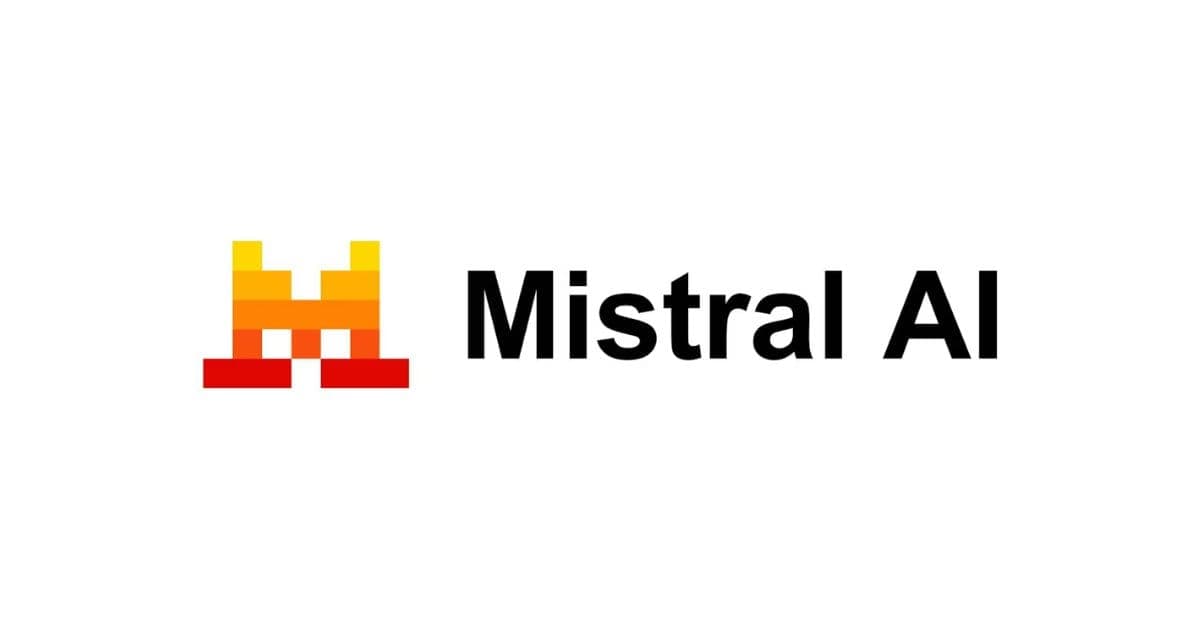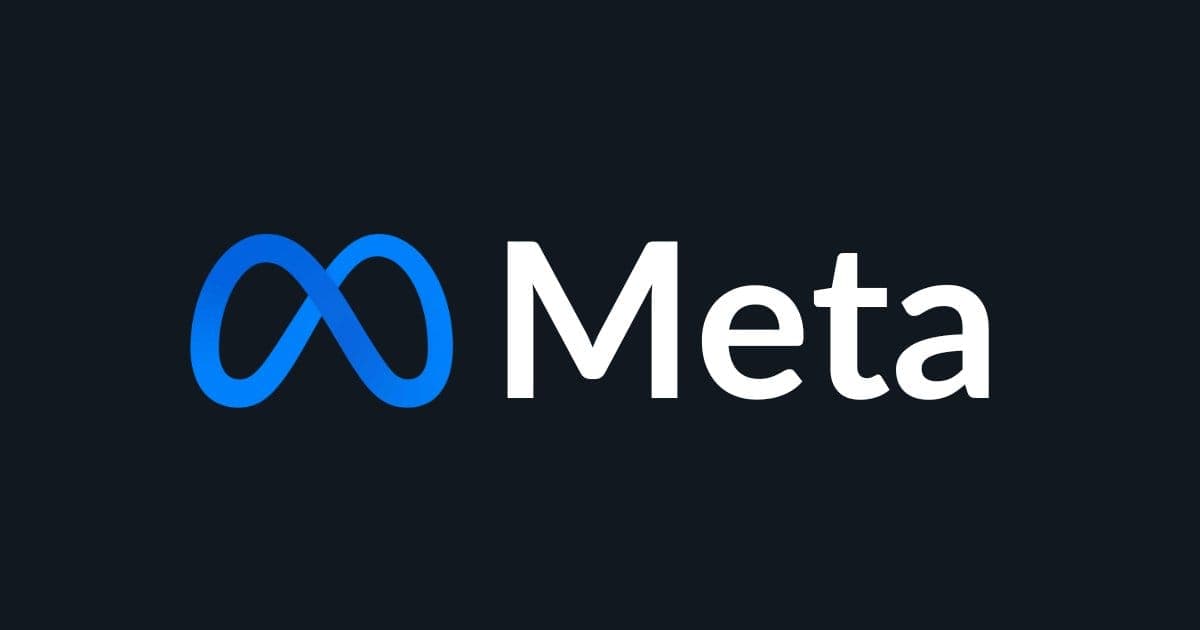Are you preparing for a Machine Learning Engineer interview at McKinsey & Company? This comprehensive guide will provide you with insights into McKinsey's interview process, key responsibilities of the role, and strategies to help you excel.
As a leading global management consulting firm, McKinsey is known for its rigorous selection process, and understanding their unique approach can significantly enhance your chances of success.
We will explore the structure of the interview, the types of questions you can expect, and share valuable tips to help you navigate each stage with confidence and poise.
Let’s dive in 👇
1. McKinsey & Company ML Engineer Job
1.1 Role Overview
At McKinsey & Company, Machine Learning Engineers play a pivotal role in driving innovation and solving complex problems across various sectors. This position requires a combination of technical proficiency, analytical skills, and a strategic mindset to develop and implement machine learning solutions that create significant impact. As an ML Engineer at McKinsey, you will collaborate with diverse teams to tackle challenging projects and contribute to transformative change for clients worldwide.
Key Responsibilities:
- Design and develop machine learning models to address client-specific challenges and optimize business processes.
- Collaborate with data scientists and consultants to integrate ML solutions into broader strategic initiatives.
- Implement scalable data pipelines and ensure the robustness of ML models in production environments.
- Analyze large datasets to extract meaningful insights and drive data-driven decision-making.
- Stay abreast of the latest advancements in machine learning and apply them to enhance client solutions.
- Work closely with clients to understand their needs and tailor ML solutions to meet their objectives.
- Contribute to the development of best practices and frameworks for machine learning at McKinsey.
Skills and Qualifications:
- Strong programming skills in languages such as Python and proficiency in ML libraries like TensorFlow or PyTorch.
- Experience with data processing frameworks and tools such as Apache Spark or Hadoop.
- Expertise in deploying machine learning models in cloud environments like AWS, Azure, or Google Cloud.
- Solid understanding of statistical analysis and data modeling techniques.
- Ability to work collaboratively in a team-oriented environment and communicate complex technical concepts to non-technical stakeholders.
- Proven track record of managing end-to-end ML projects, from conception to deployment.
1.2 Compensation and Benefits
McKinsey & Company offers a competitive compensation package for Machine Learning Engineers, reflecting its commitment to attracting and retaining top talent in the data and AI fields. The compensation structure includes a base salary, performance bonuses, and stock options, along with a variety of benefits that promote work-life balance and professional development.
Example Compensation Breakdown by Level:
| Level Name | Total Compensation | Base Salary | Stock (/yr) | Bonus |
|---|---|---|---|---|
| ML Engineer I | $162K | $125K | $1.3K | $35K |
| ML Engineer II | $187K | $167K | $1.3K | $18.6K |
| Senior ML Engineer | $210K | $186K | $0 | $24.4K |
| Principal ML Engineer | $240K+ | $230K | $0 | $10K+ |
Additional Benefits:
- Participation in McKinsey’s stock programs, including restricted stock units (RSUs) and the Employee Stock Purchase Plan.
- Comprehensive medical and dental coverage.
- Tuition reimbursement for education related to career advancement.
- Flexible work arrangements and generous paid time off.
- Access to professional development resources and mentorship programs.
Tips for Negotiation:
- Research compensation benchmarks for ML Engineer roles in your area to understand the market range.
- Consider the total compensation package, which includes stock options, bonuses, and benefits alongside the base salary.
- Highlight your unique contributions and experiences during negotiations to maximize your offer.
McKinsey’s compensation structure is designed to reward innovation, collaboration, and excellence in the field of machine learning and AI. For more details, visit McKinsey’s careers page.
2. McKinsey & Company ML Engineer Interview Process and Timeline
Average Timeline: 4-6 weeks
2.1 Resume Screen
The first stage of the McKinsey & Company ML Engineer interview process is a resume review. Recruiters assess your background to ensure it aligns with the job requirements. Given the competitive nature of this step, presenting a strong, tailored resume is crucial.
What McKinsey & Company Looks For:
- Proficiency in Python, SQL, and machine learning algorithms.
- Experience in A/B testing, analytics, and product metrics.
- Projects that demonstrate innovation, business impact, and collaboration.
Tips for Success:
- Highlight experience with machine learning models and data-driven decision-making.
- Emphasize projects involving analytics and statistical analysis.
- Use keywords like "machine learning," "data analysis," and "SQL."
- Tailor your resume to showcase alignment with McKinsey’s mission of driving impactful solutions.
Consider a resume review by an expert recruiter who works at FAANG to enhance your application.
2.2 Recruiter Phone Screen
In this initial call, the recruiter reviews your background, skills, and motivation for applying to McKinsey & Company. They will provide an overview of the interview process and discuss your fit for the ML Engineer role.
Example Questions:
- Can you describe a time when you led a team to achieve a significant goal?
- What tools and techniques do you use to clean and analyze large datasets?
- How have you contributed to cross-functional team projects?
Prepare a concise summary of your experience, focusing on key accomplishments and business impact.
2.3 Technical Screen
This round evaluates your technical skills and problem-solving abilities. It typically involves coding exercises, data analysis questions, and discussions on machine learning concepts.
Focus Areas:
- Algorithms: Solve problems using efficient algorithms and data structures.
- Machine Learning: Discuss model evaluation metrics, optimization techniques, and feature engineering.
- SQL: Write queries using joins, aggregations, and subqueries.
Preparation Tips:
Practice coding and SQL questions to enhance your problem-solving skills. Consider technical interview coaching by an expert coach who works at FAANG for personalized guidance.
2.4 Onsite Interviews
The onsite interview typically consists of multiple rounds with engineers, managers, and cross-functional partners. Each round is designed to assess specific competencies.
Key Components:
- Coding Challenges: Solve live exercises that test your ability to manipulate and analyze data effectively.
- Real-World Business Problems: Address complex scenarios involving machine learning models and analytics.
- Behavioral Interviews: Discuss past projects, collaboration, and adaptability to demonstrate cultural alignment with McKinsey.
Preparation Tips:
- Review core machine learning topics, including model training, evaluation, and deployment.
- Research McKinsey’s projects and think about how machine learning could enhance them.
- Practice structured and clear communication of your solutions, emphasizing actionable insights.
For Personalized Guidance:
Consider mock interviews or coaching sessions to simulate the experience and receive tailored feedback. This can help you fine-tune your responses and build confidence.
3. McKinsey & Company ML Engineer Interview
3.1 Machine Learning Questions
Machine learning questions at McKinsey & Company assess your understanding of algorithms, model building, and problem-solving techniques applicable to real-world scenarios.
Example Questions:
- Explain the difference between classification and regression models.
- What are the types of loss functions used in optimization?
- Describe the concept of bagging and boosting in tree methods.
- How would you implement a recommendation system using collaborative filtering?
- Discuss the basic architectures of neural networks used in deep learning.
- What are the challenges of unsupervised learning, and how can they be addressed?
- How do you evaluate the performance of a machine learning model?
For more in-depth learning, check out our Machine Learning Course.
3.2 Software Engineering Questions
Software engineering questions evaluate your coding skills, understanding of algorithms, and ability to solve complex problems efficiently.
Example Questions:
- How would you optimize a given algorithm for better performance?
- Explain the concept of time complexity and how it affects algorithm efficiency.
- What are the differences between a stack and a queue, and when would you use each?
- Describe how you would implement a linked list from scratch.
- How do you handle memory management in programming languages like C++?
- What are the key principles of object-oriented programming?
- How would you design a system to handle high concurrency?
3.3 ML System Design Questions
ML system design questions assess your ability to architect and implement machine learning systems that are scalable, efficient, and robust.
Example Questions:
- Design a system that recommends artists to follow on a music streaming platform.
- How would you design an intelligent search system for a video-sharing platform?
- What considerations would you take into account when designing a model to filter offensive content online?
- Describe the end-to-end process of deploying a machine learning model in production.
- How would you ensure the scalability of a machine learning system handling millions of requests per day?
- What are the key components of a robust ML pipeline?
- Discuss the trade-offs between accuracy and latency in ML system design.
Enhance your skills with our ML System Design Course.
3.4 Cloud Infrastructure Questions
Cloud infrastructure questions evaluate your understanding of cloud services and how they can be leveraged to deploy and manage machine learning models.
Example Questions:
- What are the benefits of using cloud services for machine learning model deployment?
- How would you set up a continuous integration/continuous deployment (CI/CD) pipeline for ML models in the cloud?
- Explain the differences between IaaS, PaaS, and SaaS in the context of cloud computing.
- How do you ensure data security and compliance when using cloud services?
- What are the challenges of scaling machine learning models in a cloud environment?
- Describe how you would use cloud-based tools to monitor the performance of deployed models.
- What strategies would you use to optimize cloud costs for machine learning workloads?
4. How to Prepare for the McKinsey ML Engineer Interview
4.1 Understand McKinsey’s Business Model and Products
To excel in open-ended case studies at McKinsey, it’s crucial to understand their business model and the diverse range of services they offer. McKinsey & Company is a global management consulting firm that provides strategic advice to businesses, governments, and institutions.
Key Areas to Understand:
- Consulting Services: How McKinsey helps clients solve complex problems and drive transformation through strategic insights and data-driven solutions.
- Industry Expertise: The sectors McKinsey operates in, such as healthcare, finance, technology, and more, and how machine learning can enhance these areas.
- Client Impact: The role of machine learning in delivering measurable outcomes and value to clients.
Understanding these aspects will provide context for tackling case study questions and demonstrating how machine learning can be applied to real-world business challenges.
4.2 Strengthen Your ML System Design Skills
ML system design is a critical component of the McKinsey ML Engineer interview. You’ll need to demonstrate your ability to architect scalable and efficient machine learning systems.
Key Focus Areas:
- Designing end-to-end ML pipelines that handle data ingestion, model training, and deployment.
- Understanding trade-offs between model accuracy and system latency.
- Ensuring scalability and robustness of ML systems in production environments.
Consider enrolling in our ML System Design Course to deepen your understanding and practice designing complex systems.
4.3 Master Core Machine Learning Concepts
Proficiency in machine learning concepts is essential for success in technical interviews at McKinsey.
Key Topics:
- Model evaluation metrics and optimization techniques.
- Feature engineering and data preprocessing strategies.
- Understanding of algorithms such as classification, regression, and clustering.
For a comprehensive review, consider our ML Engineer Bootcamp to enhance your technical skills and problem-solving abilities.
4.4 Enhance Your Coding and SQL Skills
Strong coding and SQL skills are vital for the technical screen and onsite interviews at McKinsey.
Key Focus Areas:
- Proficiency in Python and ML libraries like TensorFlow or PyTorch.
- Writing efficient SQL queries for data manipulation and analysis.
- Understanding data structures and algorithms for coding challenges.
Practice with real-world scenarios using our SQL Course to build confidence in your technical abilities.
4.5 Practice with Mock Interviews and Coaching
Simulating the interview experience can significantly improve your readiness and confidence. Mock interviews with a peer or coach can help you refine your answers and receive constructive feedback.
Tips:
- Practice structuring your answers for technical and case study questions.
- Engage with professional coaching services for tailored, in-depth guidance and feedback.
- Review common behavioral questions to align your responses with McKinsey’s values.
Consider engaging with coaching platforms like DataInterview.com for personalized preparation. Mock interviews will help you build communication skills, anticipate potential challenges, and feel confident during McKinsey’s interview process.
5. FAQ
- What is the typical interview process for a Machine Learning Engineer at McKinsey & Company?
The interview process generally includes a resume screen, recruiter phone screen, technical screen, and onsite interviews. The entire process typically spans 4-6 weeks. - What skills are essential for a Machine Learning Engineer role at McKinsey?
Key skills include strong programming abilities in Python, proficiency in machine learning libraries like TensorFlow or PyTorch, experience with data processing frameworks such as Apache Spark, and a solid understanding of statistical analysis and data modeling techniques. - How can I prepare for the technical interviews?
Focus on practicing coding challenges, SQL queries, and machine learning concepts. Review model evaluation metrics, optimization techniques, and system design principles. Engaging in mock interviews can also help refine your responses. - What should I highlight in my resume for McKinsey?
Emphasize your experience with machine learning projects, data-driven decision-making, and collaboration in cross-functional teams. Tailor your resume to showcase impactful contributions and alignment with McKinsey’s mission of driving transformative change. - How does McKinsey evaluate candidates during interviews?
Candidates are assessed on their technical skills, problem-solving abilities, and cultural fit. The interviewers look for a combination of analytical thinking, innovation, and the ability to communicate complex concepts effectively. - What is McKinsey’s mission?
McKinsey & Company’s mission is to help clients make significant and lasting improvements to their performance and realize their most important goals through data-driven insights and strategic solutions. - What are the compensation levels for Machine Learning Engineers at McKinsey?
Compensation for ML Engineers ranges from approximately $162K for entry-level positions to over $240K for senior roles, including base salary, bonuses, and stock options. - What should I know about McKinsey’s business model for the interview?
Understanding McKinsey’s consulting approach, industry expertise, and how machine learning can enhance client solutions is crucial. Familiarity with their diverse sectors, such as healthcare and finance, will be beneficial for case study discussions. - What are some key metrics McKinsey tracks for success?
Key metrics include client satisfaction, project impact, and the effectiveness of implemented solutions. Understanding how machine learning can drive measurable outcomes for clients will be advantageous. - How can I align my responses with McKinsey’s values during the interview?
Highlight experiences that demonstrate collaboration, innovation, and a commitment to client success. Discuss how you’ve leveraged data and machine learning to solve complex problems and drive business impact.




